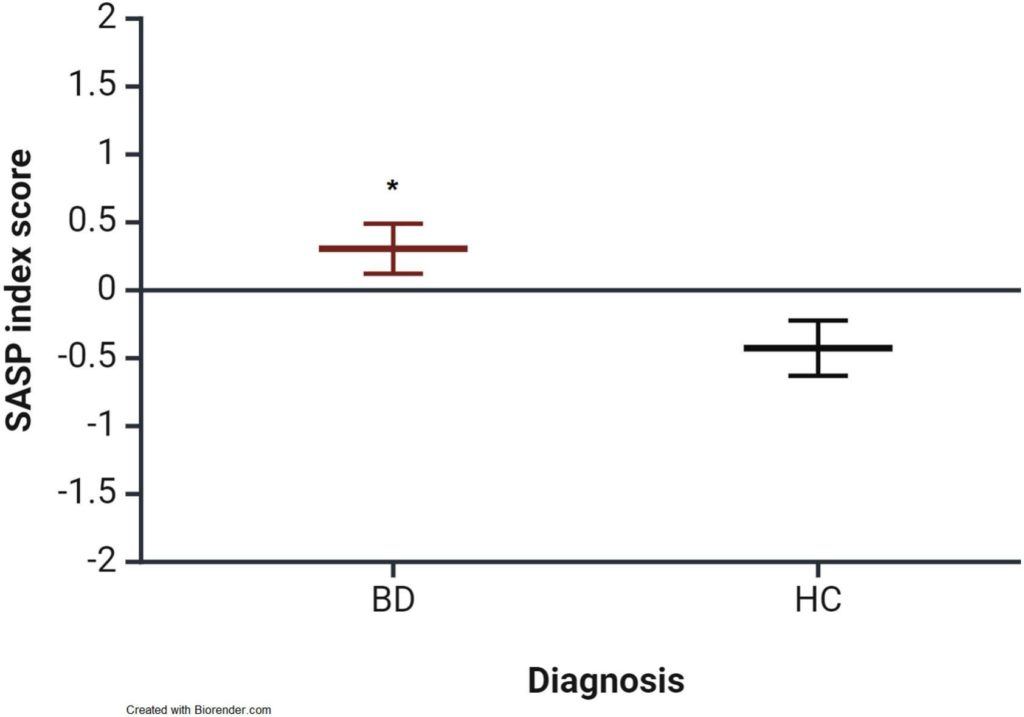Are Senolytics a Road to Better Mental Health and a Longer Life?
Senolytics — compounds that reduce age-driving cells — may alleviate age-related mental illness.
Highlights:
- Despite its influence on premature mortality, age-related mental illness is scientifically underexplored in the longevity space.
- Older individuals with major depression and bipolar disorder may have higher levels of age-associated senescent cells.
- Senolytics may alleviate symptoms of mental illness by targeting senescence-associated accelerated aging.
While the onset of mental illness usually occurs during adolescence and early adulthood, late-onset mental illness occurs during middle age and older adulthood. Moreover, serious mental illness is associated with higher rates of mortality and age-related diseases, including cardiovascular disease, the leading cause of death worldwide. Despite this, mental illness has been largely overlooked by aging biology researchers.
Still, the latest discoveries in the field of biological aging lend themself to the treatment of mental illness. Researchers are finding how to slow and accelerate aging by altering specific biological targets. Such age manipulation may benefit individuals with mental illness who are vulnerable to accelerated aging. Indeed, delaying the biological aging of individuals with late-onset mental illness could promote a longer life.
The Good, the Bad, and the Ugly of Senescent Cells
One of the biological determinants of aging involves senescent cells — cells that change their function in response to stressors like DNA damage. A 2016 study showed that eliminating senescent cells increases the lifespan of mice by 24%. If the same were to occur in humans, removing senescent cells could lead to a 100-year lifespan, assuming a life expectancy of 81.
However, senescent cells are not inherently bad, but play many beneficial roles in the body, especially during earlier stages of life. More precisely, it is the accumulation of chronically active senescent cells that is associated with chronic diseases of aging and perhaps mortality. Furthermore, emerging evidence suggests that senescent cells contribute to the accelerated biological aging associated with mental illness.
Senescent Cells and Mental Illness
Recently, researchers from the University of Connecticut published a study suggesting that older adults with bipolar disorder (BD) are burdened with higher-than-normal levels of molecules known as SASP (senescence-associated secretory phenotype) factors. SASP factors are molecules secreted by senescent cells, some of which contribute to chronic low-grade inflammation — a major contributor to aging.

Additionally, higher SASP factor levels were associated with older age and worse depressive symptoms. Considering that elevated SASP levels were previously observed in older patients with major depression, the authors hypothesize that,
“Enhanced molecular and cellular senescence abnormalities are a common feature of mood disorders (i.e., both bipolar disorder and major depressive disorder) in older adults. This hypothesis provides a plausible biological mechanism explaining why mood disorders are associated with negative physical health outcomes in older adults.”
Senolytics May Support Mental Health and Longevity
Senolytics are a class of anti-aging compounds that destroy and get rid of senescent cells. Naturally occurring senolytics include quercetin, fisetin, and other flavonoids — chemicals found in fruits and vegetables. Importantly, senolytics have been shown to increase the lifespan of various organisms and exhibit anti-depressant effects in rodent models of depression.

While flavonoids show promise on their own, researchers often combine the flavonoid quercetin with the anticancer drug Dasatinib. Intermittent administration of Dasatinib and quercetin (D+Q) has been shown to increase the lifespan of mice, demonstrating its potent anti-aging effects. Accordingly, clinical trials are underway to test the efficacy of D+Q against age-related conditions like Alzheimer’s disease.
At that, researchers from the University of Connecticut have started recruiting participants for the first clinical trial to test the effects of D+Q on accelerated aging mental disorders, including depression. The researchers say,
“We acknowledge that the D+Q combination is a potential ‘cure’ for mental illness; the hope is that it corrects one mechanism that underlies a host of problems in serious mental illness, namely accelerated aging-related treatment resistance, morbidity, and mortality.”
With that being said, if the researchers find that D+Q alleviates the symptoms of mental illness in older individuals, it could pave the way for new senolytic antidepressant therapies. Further studies of the same population could evaluate the effect of D+Q on rates of mortality and chronic disease.
Whether senolytics can prevent age-related mental illness requires further investigation. Chronic psychological stress is associated with whole-body low-grade inflammation, which promotes cellular senescence. Thus, chronic stress throughout a lifetime could lead to a higher abundance of senescent cells and increased SASP factor levels. It is therefore possible that these senescent cells and SASP factors contribute to the induction of mental illness. However, there are no studies that have explored this. Additionally, one worry is that senolytics could kill beneficial senescent cells, making further exploration paramount.

